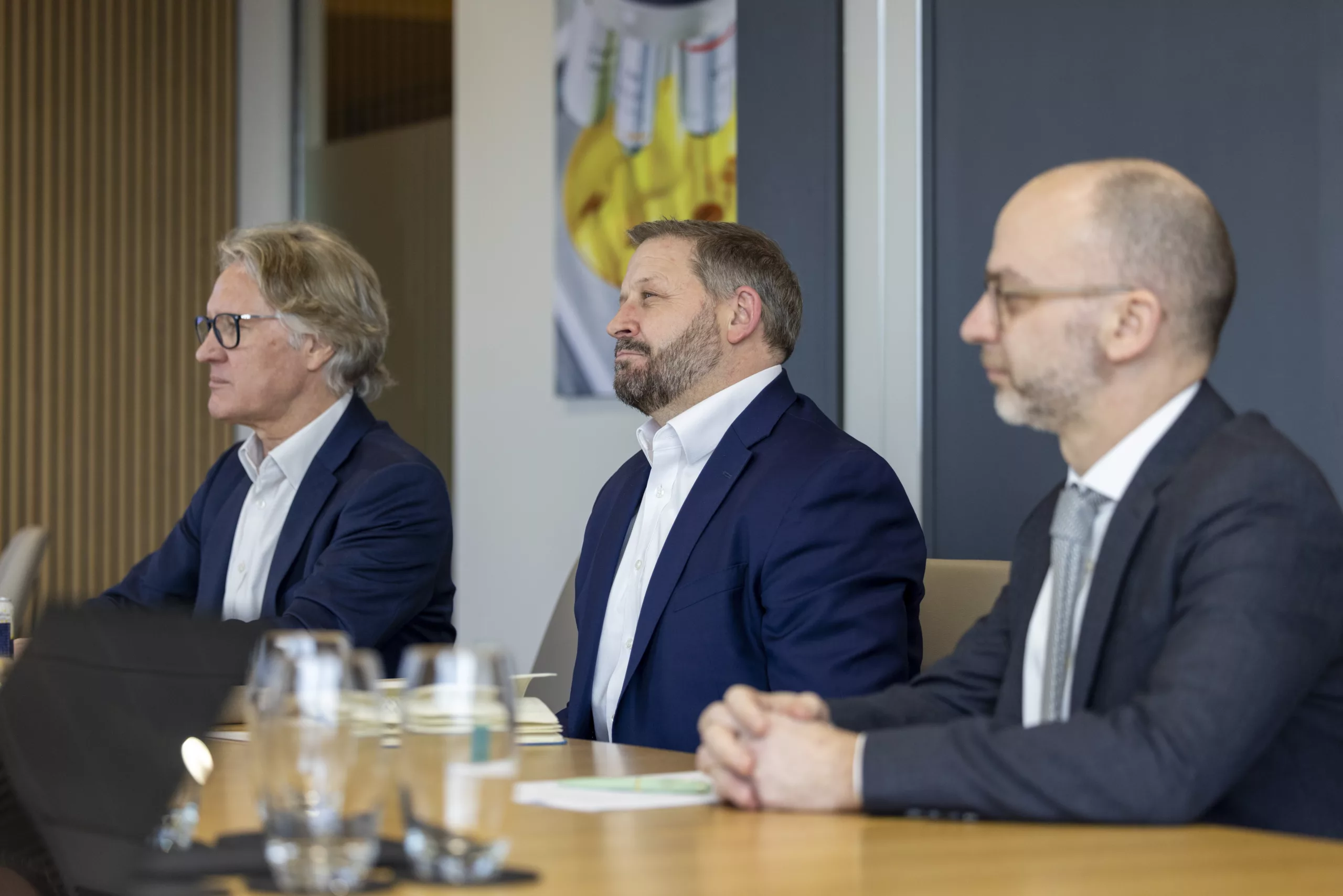Cambridge Independent | Paul Brackley
2 Feb 2024
Minister Gareth Davies visited Cambridge to champion the city as an innovation hotspot – and learn what the government can do in support.
The exchequer secretary to the Treasury, who has responsibility for growth and productivity, visited Cambridge Innovation Capital (CIC) and met with leaders from three of its stellar portfolio companies – CMR Surgical, Pragmatic and Riverlane.
Afterwards, Mr Davies told the Cambridge Independent: “The reason I’m in Cambridge is because this city, and this county, is a world leader in innovation, particularly in life sciences.
“If you look at the whole of life sciences turnover in the country, I think nine per cent comes from Cambridge alone.
“I wanted to come and see companies who have an idea, stick it out, take the risk and develop a product that’s genuinely innovative. I wanted to hear directly what the opportunity they saw in the UK was and what support they need from national government.”
He spoke to Mark Slack, from CMR Surgical – a unicorn that has developed, manufactured and is now selling globally its Versius surgical robot – and to Steve Brierley, founder of quantum computing pioneer Riverlane.
And he was struck by the story of David Moore, CEO of Pragmatic, who arrived in Cambridge to head up the flexible integrated circuit company after spending most of his career in the US in senior operating positions with leading semiconductor companies.
“He moved from Silicon Valley to come to Cambridge to run one of our most innovative companies,” noted the MP for Grantham and Stamford. “Often the narrative is people are leaving this country and seeking exciting opportunities overseas. Actually, the opposite is happening. We are continuing to attract the best and the brightest either back home or from overseas.
“The government has a part to play through things like the Global Talent visa and other ways that we can use the visa system to ensure that when people come over to study here, they stay to innovate, or if they are working overseas and innovating already, they come over to this country because they know there are the companies here and a government that has their back.”
Mr Davies added: “I also spent time with CIC, who are investing in some of the most transformational companies in the country and are helping to direct pension fund capital in particular towards those investments, which is something we as a national government are prioritising through, for example, the Mansion House Compact.
“That’s why I’m here, to see for myself what these genuinely innovative companies are doing, how they are doing it and how we can help them more.”
So how can the government foster innovation?
“There’s a few ways,” replied the minister. “The first thing is setting the tone from the top. We want a culture so that if you do have an idea, we should facilitate the ability to translate that idea into a product or service, and risk-taking to do that is a good thing.
“In terms of practical policies, we want to support research and development and investment. So we’ve recently reformed our R&D tax credit system, for example, and we are spending about £20billion to support that system. That means that companies that are reinvesting profits and have a certain percentage of expenditure on R&D will be able to benefit from enhanced R&D credits, so that initial stage of development is supported and these products can be developed.
“At the Autumn Statement last year, we outlined a package that is part of a £4.5bn advanced manufacturing package, accepting that in some instances, grants are required – an injection of funding is required. If we just take the life sciences industry, that equates to about £520million of investment as part of the Autumn Statement, provided through grants.
Mr Davies had a message of support for those companies entering the Cambridge Independent Science and Technology Awards.
“I wish them well as part of that process and good luck, and I want to thank them actually for being at the forefront of innovation,” he said. “We, in this government, regard our most innovative companies as fuel for overall growth in the country. If these businesses are successful, the country is successful.”
Andrew Williamson, managing partner at CIC, said: “Cambridge stands at the forefront of global innovation, particularly in life sciences and DeepTech, where its research leads the world. It has emerged as Europe’s premier innovation hub, generating £30billion for the UK economy and boasting a remarkable 12-times economic impact for every £1 spent on research.
“We were delighted to host the exchequer secretary Gareth Davies, and showcase the ambitious entrepreneurs we champion, including Pragmatic Semiconductor, CMR Surgical and Riverlane, who are translating deeply technical, scientific breakthroughs in semiconductors, surgical robotics and quantum computing to solve many of the world’s future challenges.”
